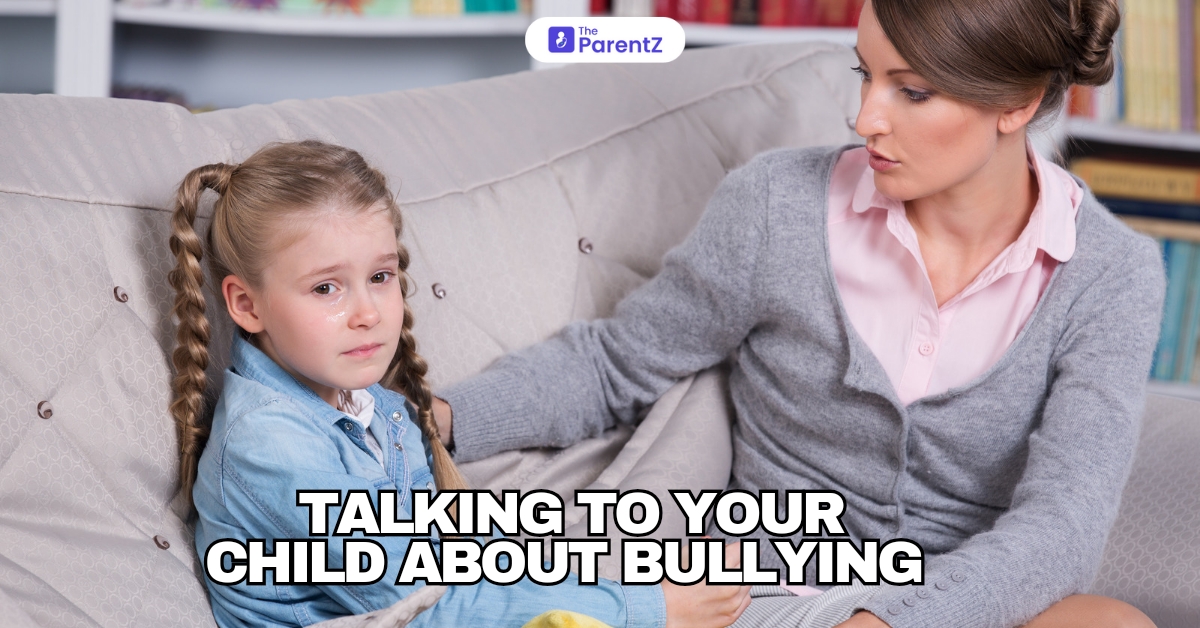Why Should I Talk to My Child About Bullying?
Bullying is a critical issue that can have long-lasting effects on a child’s mental and emotional well-being. It is essential to discuss it with your child because:
- Prevention and Awareness: Educating your child about bullying can help prevent them from becoming a victim or a perpetrator. It raises their awareness about the behaviours that constitute bullying and why they are harmful.
- Empowerment: Knowledge empowers your child to recognize bullying and equips them with strategies to handle it effectively. This empowerment fosters resilience and confidence in dealing with difficult situations.
- Open Communication: Talking about bullying establishes a foundation of trust and openness. It reassures your child that they can come to you with any problems, and foster a supportive environment.
- Mental Health: Addressing bullying early can mitigate its negative impact on your child’s mental health. It helps in identifying signs of distress and providing timely support.
When Should I Talk to My Child About Bullying?
Conversations about bullying should start early and continue as your child grows. This is what a general timeline could look like:
- Early Childhood (Ages 3-6): Begin with basic concepts of kindness, respect, and empathy. Teach them about personal boundaries and how to express their feelings.
- Elementary School (Ages 6-10): As children start school, they encounter more social interactions. Discuss what bullying is, how it can happen, and why it’s wrong. Role-play scenarios to help them understand how to react.
- Pre-Teens (Ages 10-13): Address more complex issues like cyberbullying and peer pressure. Encourage open discussions about their school experiences and friendships.
- Teenagers (Ages 13+): Continue the conversation, focusing on digital behaviour, mental health, and seeking help. Reinforce the importance of standing up against bullying and supporting others.
What Should I Tell My Child About Bullying?
When talking to your child about bullying, cover these key points:
- Definition of Bullying: Explain that bullying involves repeated, intentional harm—whether physical, verbal, or emotional—by one or more individuals. It can happen in person or online.
- Types of Bullying: Discuss the different forms of bullying, including physical (hitting, pushing), verbal (name-calling, threats), social (exclusion, spreading rumours), and cyberbullying (online harassment).
- Impact of Bullying: Emphasise that bullying can cause significant emotional and psychological harm. It affects both the victim and the bully, leading to long-term consequences.
- Recognizing Bullying: Teach them to recognize signs of bullying in themselves and others. Encourage them to trust their feelings and speak up if something doesn’t feel right.
- Handling Bullying: Provide strategies for dealing with bullying, such as telling a trusted adult, standing up for themselves or others assertively, and not retaliating aggressively.
- Support System: Reassure them that they are not alone and that seeking help is a sign of strength, not weakness. Emphasise the importance of communicating with teachers, parents, or counsellors.
I Have Problems Talking to My Child About Bullying. What Should I Do?
If you find it challenging to talk to your child about bullying, here are some strategies to help:
- Educate Yourself: Familiarise yourself with information about bullying, including its signs, effects, and prevention strategies. This knowledge will help you feel more confident in discussing the topic.
- Use Resources: Books, videos, and online resources tailored for children can serve as conversation starters. They provide age-appropriate explanations and scenarios.
- Choose the Right Moment: Find a comfortable and relaxed setting to bring up the topic. Avoid making it feel like a formal or forced conversation.
- Be Honest and Open: Share your own experiences or feelings about bullying if appropriate. This honesty can make the conversation more relatable and less intimidating.
- Ask Open-Ended Questions: Encourage your child to express their thoughts and feelings by asking open-ended questions. Listen actively and validate their emotions.
- Seek Professional Help: If you’re still struggling, consider seeking advice from a counsellor or psychologist. They can provide guidance and support for both you and your child.
Talking to your child about bullying is a crucial step in ensuring their safety and well-being. You can help your child navigate the complexities of social interactions and foster a supportive environment where they feel empowered to speak up and seek help by having an open conversation with them about it.








Be the first one to comment on this story.